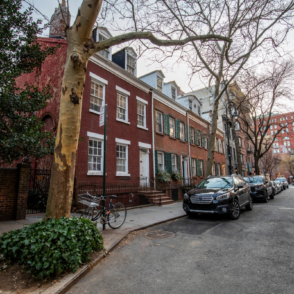Approximately 75 percent of buildings in New York City are co-ops. Not exactly sure what that means?
Here’s everything you need to know:
What is a co-op?
A co-op is similar to a condo, but instead, a single corporation that owns the entire building. Instead of a deed, buyers get shares or stock certificates in the corporation and a proprietary lease that allows buyers to occupy a specific unit.
So, when you purchase a co-op, you’re not purchasing a home – you’re buying shares in a corporation that allows you to live in that home.
Everyone who lives in the co-op is considered a shareholder, and typically the size of your apartment determines your stake in the building. All residents have access to certain common areas and will be responsible for maintaining the property.
The co-op will also have a board of directors that creates by-laws that outline the building’s rules. However, every shareholder gets a say in how the building is run.
How else does a co-op differ from a condo?
When you purchase a condominium, you’re buying ownership of that property. Since you have the deed, you can take advantage of any equity that accumulates in that property.
As mentioned, when you buy a co-op, you’re buying shares in that property. So, while you will have a place to live, you won’t own your home. This means you may have fewer options when it comes to what you can do with the property.
Co-ops tend to foster a greater sense of community among residents – but with that comes more restrictive policies – around subletting and other ways you may want to utilize the property. If you’re eyeing a co-op as an investment property, it’s probably best to pursue a condo instead.
What are the advantages of purchasing a co-op?
Some of the advantages of owning a co-op are the sense of community, the stability of the residents in the building and the lower purchase price.
If I’m not paying cash, how do I finance a co-op?
In New York, co-ops tend to have a higher down payment than condos, at least 20%.
Co-op owners do not technically own real estate, so the financing process is slightly different from a standard mortgage loan. Instead, you’ll need to take out something called a share loan.
During the application process, the lender will get information from building management about building operations and financing. The lender will also look into the board of directors and take a look at the underlying mortgage. An experienced agent can help coordinate all of the information the lender needs for the bank to approve the building.
The mortgage lender will acquire information from the building management to confirm the financial strength of the building and offer financing options in the building accordingly.
How do I purchase a unit in a co-op building?
First, the financial requirements to getting approved in a co-op are more complicated than in a condo, so having an agent that understands what is required to be approved is essential. At Platinum Properties, our agents can coach you through compiling the perfect application and prepare you for the board interview.
Your chances of purchasing your dream unit are much higher with the help of a reputable real estate agent who is knowledgeable and experienced in the financial requirements of co-op buildings. Co-ops trend toward homeowners that have a low debt to income ratio and also have sufficient post-close liquidity.
Once you and your agent find the perfect property to offer on, your agent will help you prepare your board package.
What do I need to include in a board package?
Board applications can vary greatly from building to building, with applications being anywhere from a few pages to 20-plus with a wide variety of documents requested from personal finances to letters of recommendation.
Here are some examples of paperwork the board may request from an applicant:
- Bank and investment statements, plus retirement account statements
- Federal (and sometimes state and local) income tax returns, plus W2 and 1099s (if applicable)
- Proof of employment (pay stubs and letter from employer)
- Professional and personal letters of reference
- Mortgage, application and commitment letter from lender (if financing)
What will the board interview be like?
Board interviews have a reputation of being scary and awful. Don’t worry! With the right preparation, you can ace your interview. Here are some of Platinum’s favorite tips and tricks to share with our clients:
Before meeting with the board members, be sure to review your application thoroughly and be completely familiar with it, especially the financial statement. Also, be familiar with the house rules.
- Be your own friendly, smiling self. The board members have already seen your financials, now they want to get to know you as a person.
- Answer questions directly and briefly, without elaborating (unless necessary). Do not offer more information than is asked for. In other words, be friendly, not chatty.
To learn more about how Platinum Properties helps clients navigate these types of transactions and decisions, message us to be connected with an agent who can set you up for success.


